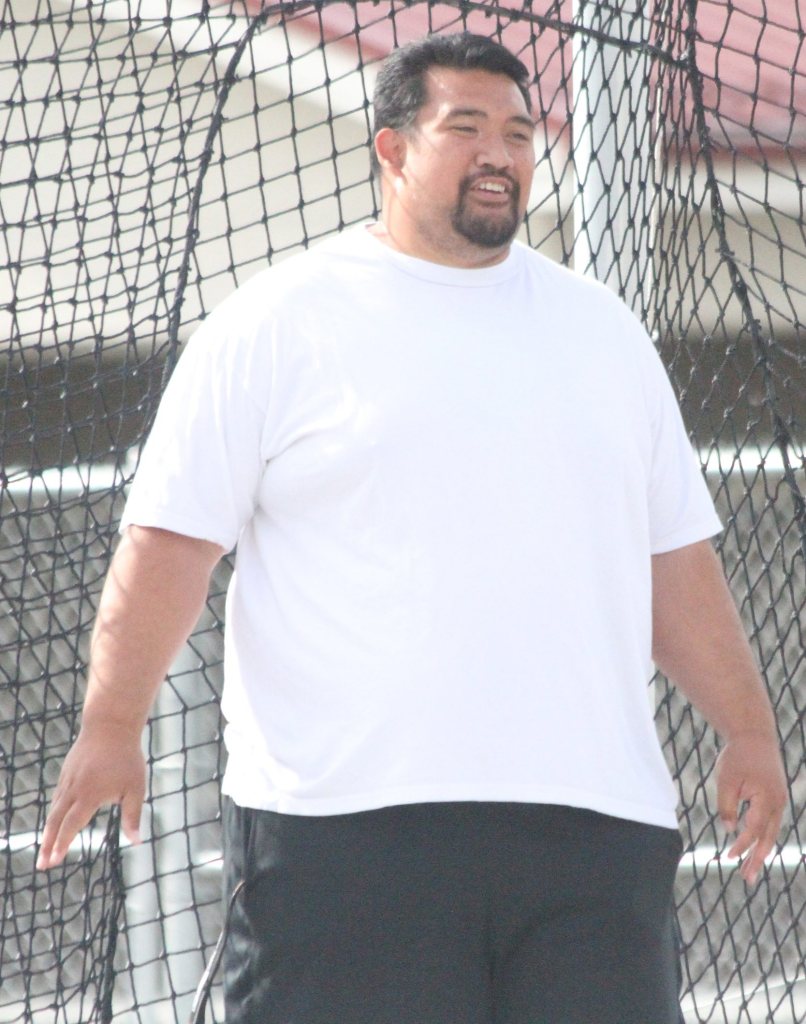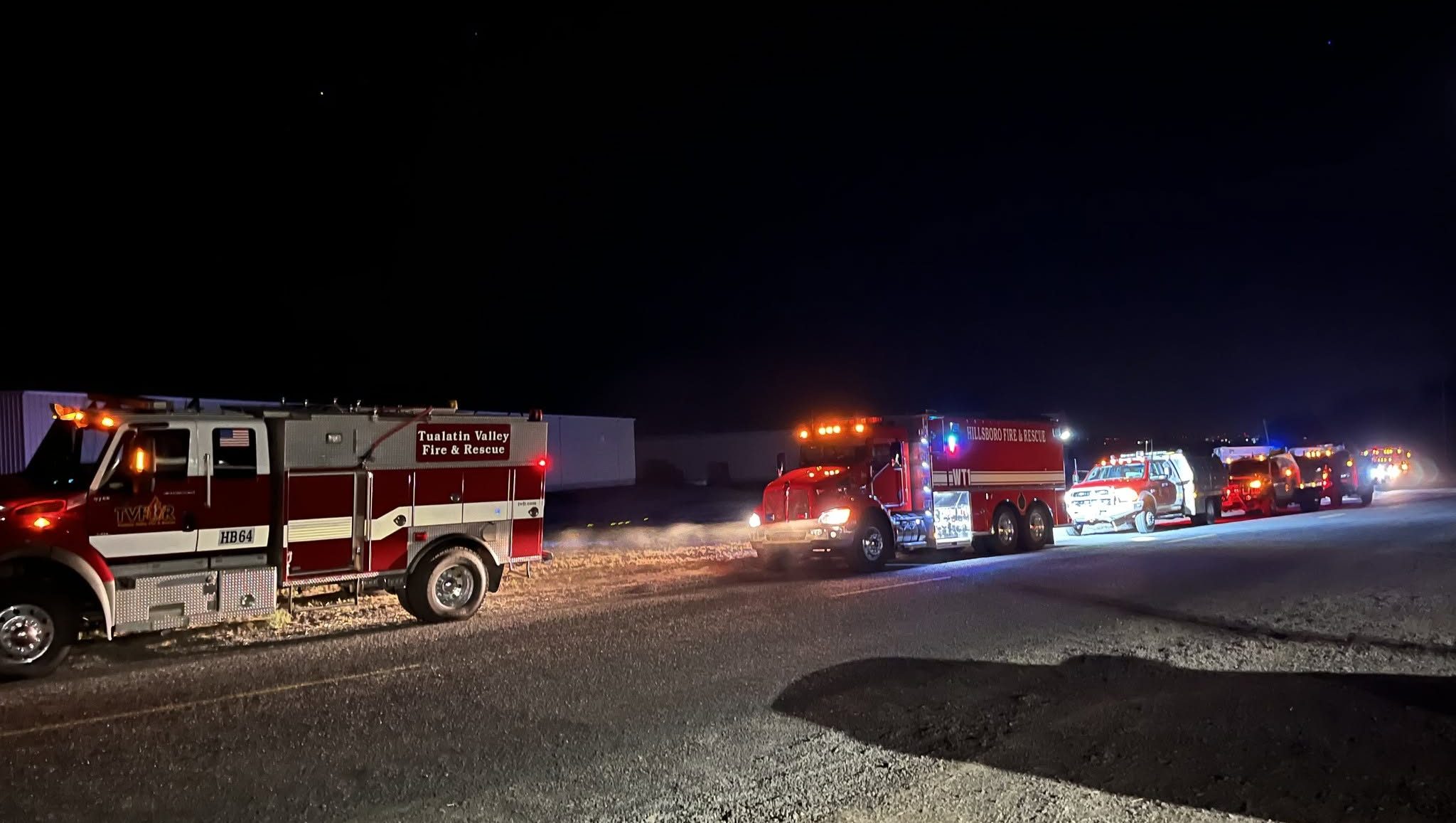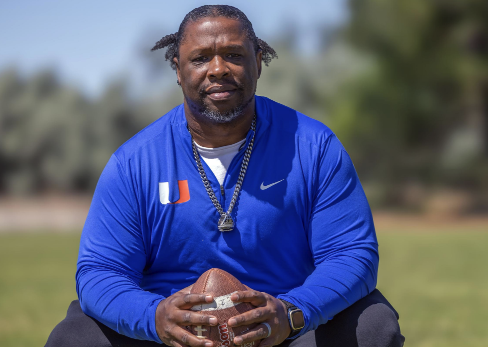A long road to Hermiston
Published 5:35 pm Thursday, May 14, 2015

- David Faaeteete is officially the head football coach of the Hermiston Bulldogs, but he had quite the journey to get there.
Before moving here, David Faaeteete didn’t know where Hermiston was.
In 2008, he was coming off his senior season at the University of Oregon, where he started 13 games, recording two sacks and recovering two fumbles. He signed contracts with the Chicago Bears and Oakland Raiders, but his pro-football career never took off. He was back home in Eugene, ready to enroll in graduate school and prepare for a career in law when a fateful call came through his cell phone.
It was Mike Kay, Hermiston’s athletic director at the time, and Mark Hodges, the newly-hired head football coach. They asked what Faaeteete was doing. He said waiting for a call and staying in shape. They asked if he wanted to coach and teach, and Faaeteete agreed.
The recent graduate had no idea how far east Hermiston was, however. He got to Hood River, called his future bosses and said he was almost there, maybe 20 minutes out. He got to Arlington, thought it was Hermiston, only to punch Hermiston into his GPS and find out he was still another 45 minutes or so from his destination.
“I had never driven that far before,” he said.
Coming to America
Faaeteete is no stranger to long journeys. As a boy, he and his family moved to San Francisco from their home in Western Samoa, where they worked a plantation on the South Pacific island and lived as sustenance farmers. His grandfather, who wound up starting a Seventh-day Adventist church in Medford, decided it would be best for the family if they moved to the States. He said there would be more opportunities for his family in America.
Faaeteete said he doesn’t remember the transition well. He knew some English from American television programs — some Chuck Norris and MacGyver among others, he said — but largely he eased into the transition. It wasn’t so for some of the adults in the family.
“I think the biggest challenge was not necessarily for me growing up — it was for our parents, our uncles getting acclimated to not having to go out to the plantation and harvest food to bring home,” he said. “My uncle still to this day gets road rage because he can’t understand why people cut him off.”
Life in the big city was a difficult transition for Faaeteete’s family, but once they moved to Oregon things quieted down. Medford was still relatively small and rural then, putting the Faaeteetes more at home. His grandfather bought a farm outside of town, and it provided a link with home, something to remember about Samoa.
After some time, Grandad, as Faaeteete calls him, had to sell the farm to attend to business in Samoa. By then, Faaeteete was a rising star on the gridiron for the North Medford Red Tornadoes, with a certain high-energy offensive coordinator prowling the sidelines.
In Medford, he started working with children at Kids Unlimited of Oregon, a mentoring service run by North Medford girls basketball coach Tom Cole. He enjoyed it. He liked being a positive influence, guiding youngsters in a productive and positive direction. His senior project delved into behavioral modification for special needs students, and it sat well with him.
“From there, I just felt like working with kids was the thing,” he said. “Early on, I kinda knew that I would be teaching and coaching eventually, but like every other young kid (I had) aspirations to play in the Big Show.”
Football career
After an all-state career at in high school, Faaeteete moved on to the University of Oregon and backed up consensus All-American and first-round NFL draft pick Haloti Ngata.
When he arrived on campus in Eugene, his only focus was football. Early into fall camp, the freshman class of about 45 was ushered around from place to place, “to eat our time,” Faaeteete said. Advisers spoke of the importance of planning a career and choosing classes to accommodate that goal.
Faaeteete raised his hand and asked simply, “What if you’re here to play football?”
“Looking back, I was a smart, cocky kid who just wanted to play,” he said.
His freshman fall camp was good enough to earn him a minor defensive role as a true freshman. His first game action game was against the No. 2, defending national champion Oklahoma Sooners with a freshman running back named Adrian Peterson. On his first snap, a play that Faaeteete still remembers vividly, the freshman split the center and guard — both All-Americans — and dropped Peterson for a three-yard loss. He didn’t even know he was going in. The next play, those All-Americans, perhaps slighted by the true freshman beating them — doubled-teamed Faaeteete and drove him back into the defensive backfield. When Ngata came back in, Faaeteete went to the sideline and was greeted with an all-too common phrase from his position coach: “Welcome to college football.”
Discovering the classroom
Faaeteete maintained his academic attitude until his sophomore year, when he was given “swift kick in the butt” by the coaching staff. His GPA had dipped under 2.5, the acceptable limit for remaining eligible. He then ran into some injury troubles to his knee and elbow and realized then that academics was important. He appraised his body and what it can bring him, and understood that football isn’t going to be around forever.
“I realized that school was really important,” he said.
At the time, Faaeteete wasn’t majoring in anything related to education. He was a political science major with an emphasis in political theory and thought he might attend graduate school at Oregon and then go into law. His eyes were also set on the NFL
That dream was fading fast, too, however. Even at Oregon, Faaeteete understood the chances of playing pro football were small. of the business-like approach. That, plus the growing injury concerns, forced Faaeteete back into the classroom with a renewed vigor. He went from B’s and C’s to A’s and B’s and graduated with a 3.6 GPA with a degree in political science. He excelled enough on the football field, however, to score a couple try-outs in the Big Show, as Faaeteete calls it.
Those opportunities led him nowhere, however. He spent a total of six days on NFL rosters and went back home to Eugene to play the waiting game. When Kay and Hodges reached out, he had all but closed the door on a potentially lucrative professional football career.
Then, in October of 2008, just a month into his new gig, the Raiders called while Faaeteete was in class. They asked how quickly he could get to Oakland, that there might be a shot to make the team.
He asked for some time, and they granted it, and he got to thinking. He told his then-girlfriend — now wife — what happened and didn’t know what to do. That evening at football practice, in the environment he always felt was right for him, he made his final decision.
“I go to practice that night with this thing on my chest,” he said. “I’m working with kids. Kids are having fun. The coaching staff’s excited about it. We’re doing drills and it hits me, ‘You don’t want to play anymore. You want to coach.’ ”
Primarily his decision was centered around fulfilling the commitment he made to Hermiston High School. He also really enjoyed what he was doing. Those summer days in Medford running the sixth-, seventh- and eighth-grade camps his senior year told him all he needed to know about where he wanted to be.
Now, he was finally there, and couldn’t think of anywhere he’d rather be.
Head coach
Seven years after mistaking Arlington for Hermiston, Faaeteete has come a long way. He said there is no place in the world he would rather be than teaching world studies and coaching football. In his class, students learn about historical events through themes. This semester is about conquest and conflict. Students are asked to think critically about violent historical events, such as World War II, and answer questions about them that aren’t “Who was this guy?” or “What happened here in this year?”
His goal in the classroom is to give students skills that stay relevant and useful long past the classroom days, long past the football day. He wants to give skills that last into life.
As a football coach, Faaeteete has endured four years of a rigorous program that demanded both athletic and academic excellence, and he has come to understand the value of both.
“Commitment, integrity, work, team work — all these things are what goes into what, I feel, makes a good person,” Faaeteete said. “Someone who honors their commitments, holds themselves accountable for their actions. The simple things. (People say), ‘That’s what you do normally.’ Exactly. If you emphasize doing things the right way, things’ll take care of themselves. The world is the world. Things happen. Not everything goes your way. But a part of life is learning from the bad and embracing the good.”









